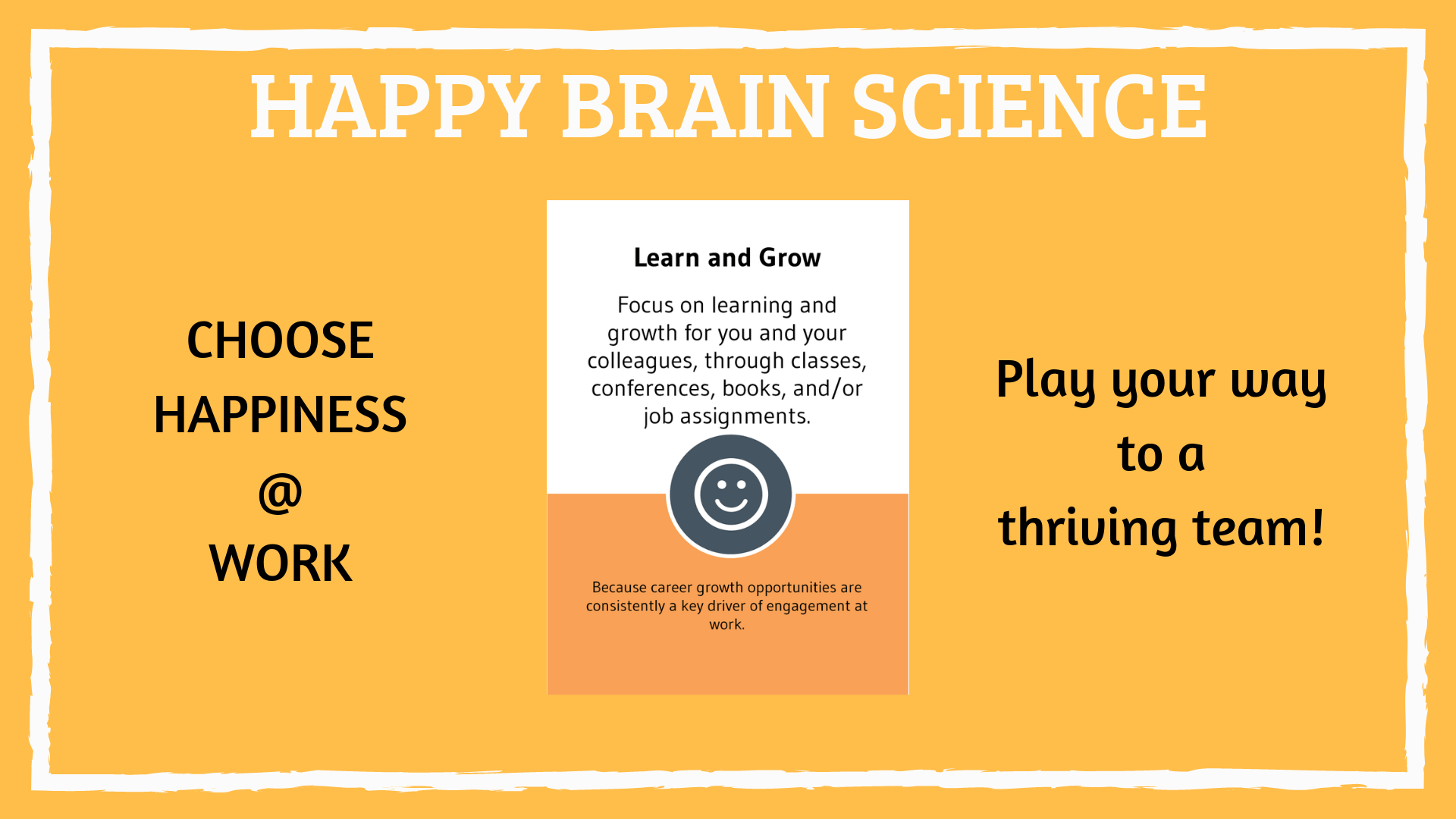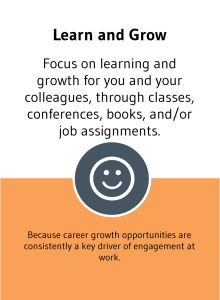
Learn and Grow: The Science of Growth
Learn and Grow: A Story
Chris knew Adam was pretty happy working on his current project. But she also knew that Adam’s career history was filled with jobs that lasted 1-2 years. And she knew that Adam was approaching his 1-year anniversary. She really wanted to retain Adam as long as possible; he was becoming a star performer!
Chris knew that learning and growth are key to employee engagement and retention. Her first step was to ask Adam to share his best possible future. After reading it, she understood how he wanted to learn and grow. She discovered that Adam wanted to learn more about people and project management.
While she knew the skills and knowledge that Adam aspired to develop, Chris didn’t know how Adam learned most effectively. So she decided to ask him directly.
 “Adam, how do you learn best? Do you learn most effectively from books, conferences, mentoring, videos, or some other means?”
“Adam, how do you learn best? Do you learn most effectively from books, conferences, mentoring, videos, or some other means?”
“Well, I love books, but I learn best when I combine reading with practice and feedback,” replied Adam.
“Got it! If I get you some great books about management and discuss them with you, then let you apply what you’ve learned and give you feedback, would that be a good way to help you develop as a leader?” asked Chris.
“That sounds awesome!”
They put this plan into action, and Chris saw Adam’s engagement grow. He seemed to be significantly more committed to the project, the job, and even to Chris. Chris was growing optimistic that she’d be able to retain Adam past his 1-year anniversary, and perhaps for many years to come.
The Science
Learning and growth are consistently shown to drive employee engagement. Everyone learns differently, but virtually everyone wants to learn and improve. We all have a strong need for competence and mastery: we’re highly motivated to meet those needs, and doing so is quite satisfying. We also tend to be more loyal to leaders who satisfy our need to learn and grow.
Apply It
Use the best possible future tool (or another technique) to reveal how you and your colleagues or employees want to develop as professionals. Next, find out how you each learn best, by asking directly and/or experimenting with different methods. Finally, provide opportunities that maximize learning and development — and highlight individual growth and progress with a progress report.
Learn more
These are a few references for effective learning in the workplace
- Learning in the workplace: Strategies for Effective Practice. Billett, Stephen. Books; Guides – Non-Classroom. June 2001. https://eric.ed.gov/?id=ED465870
- Individual Development in the Workplace. McCauley, Cynthia D., Hezlett, Sarah A. Research Paper. Handbook of industrial, work and organizational psychology, Vol. 1. Personnel psychology, pp. 313-335. http://psycnet.apa.org/record/2003-00437-014
(Please note this post is one in a series of blog posts about solutions featured in our card game and facilitation tool, Choose Happiness @ Work.)